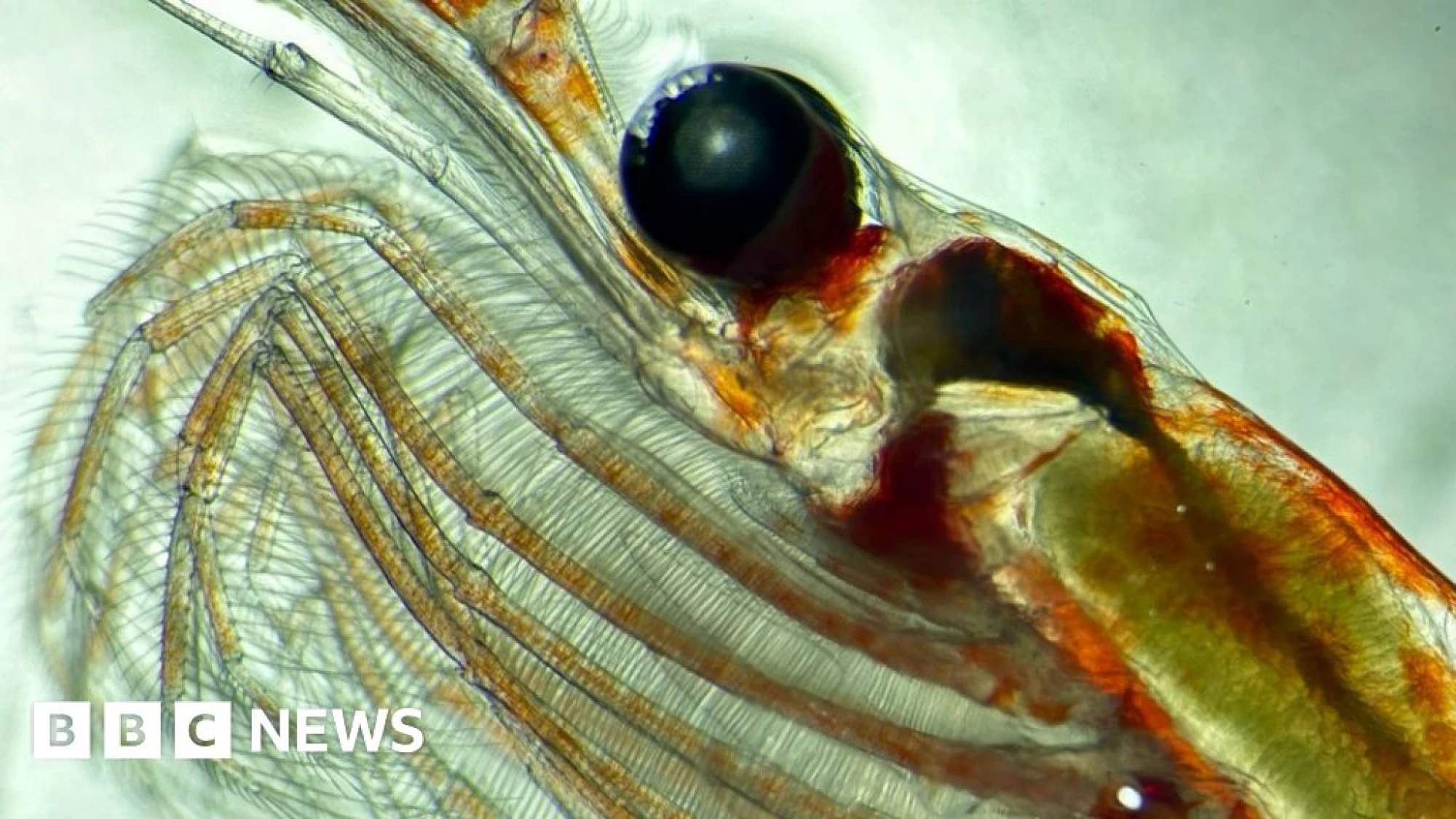Tiny creature gorges, gets fat, and locks up planet-warming carbon

Scientists find out how the epic deep sea migration of a tiny animal is storing planet-warming carbon.
Watch LiveBritish Broadcasting CorporationHomeNewsSportBusinessInnovationCultureArtsTravelEarthAudioVideoLiveHomeNewsIsrael-Gaza WarWar in UkraineUS & CanadaUKUK PoliticsEnglandN. IrelandN. Ireland PoliticsScotlandScotland PoliticsWalesWales PoliticsAfricaAsiaChinaIndiaAustraliaEuropeLatin AmericaMiddle EastIn PicturesBBC InDepthBBC VerifySportBusinessExecutive LoungeTechnology of BusinessFuture of BusinessInnovationTechnologyScience & HealthArtificial IntelligenceAI v the MindCultureFilm & TVMusicArt & DesignStyleBooksEntertainment NewsArtsArts in MotionTravelDestinationsAfricaAntarcticaAsiaAustralia and PacificCaribbean & BermudaCentral AmericaEuropeMiddle EastNorth AmericaSouth AmericaWorld’s TableCulture & ExperiencesAdventuresThe SpeciaListEarthNatural WondersWeather & ScienceClimate SolutionsSustainable BusinessGreen LivingAudioPodcastsRadioAudio FAQsVideoLiveLive NewsLive SportHomeNewsSportBusinessInnovationCultureArtsTravelEarthAudioVideoLiveWeatherNewslettersWatch LiveTiny creatures gorge, get fat, and help fight global warming16 hours agoShareSaveGeorgina RannardClimate and science correspondentShareSaveProf Daniel J Mayor @oceanplanktonA tiny, obscure animal often sold as aquarium food has been quietly protecting our planet from global warming by undertaking an epic migration, according to new research.
These "unsung heroes" called zooplankton gorge themselves and grow fat in spring before sinking hundreds of metres into the deep ocean in Antarctica where they burn the fat.
This locks away as much planet-warming carbon as the annual emissions of roughly 55 million petrol cars, stopping it from further warming our atmosphere, according to researchers.
This is much more than scientists expected. But just as researchers uncover this service to our planet, threats to the zooplankton are growing.
Scientists have spent years probing the animal's annual migration in Antarctic waters, or the Southern Ocean, and what it means for climate change.
https://www.bbc.com/news/articles/c628nnz3rp9o
Rating: 5